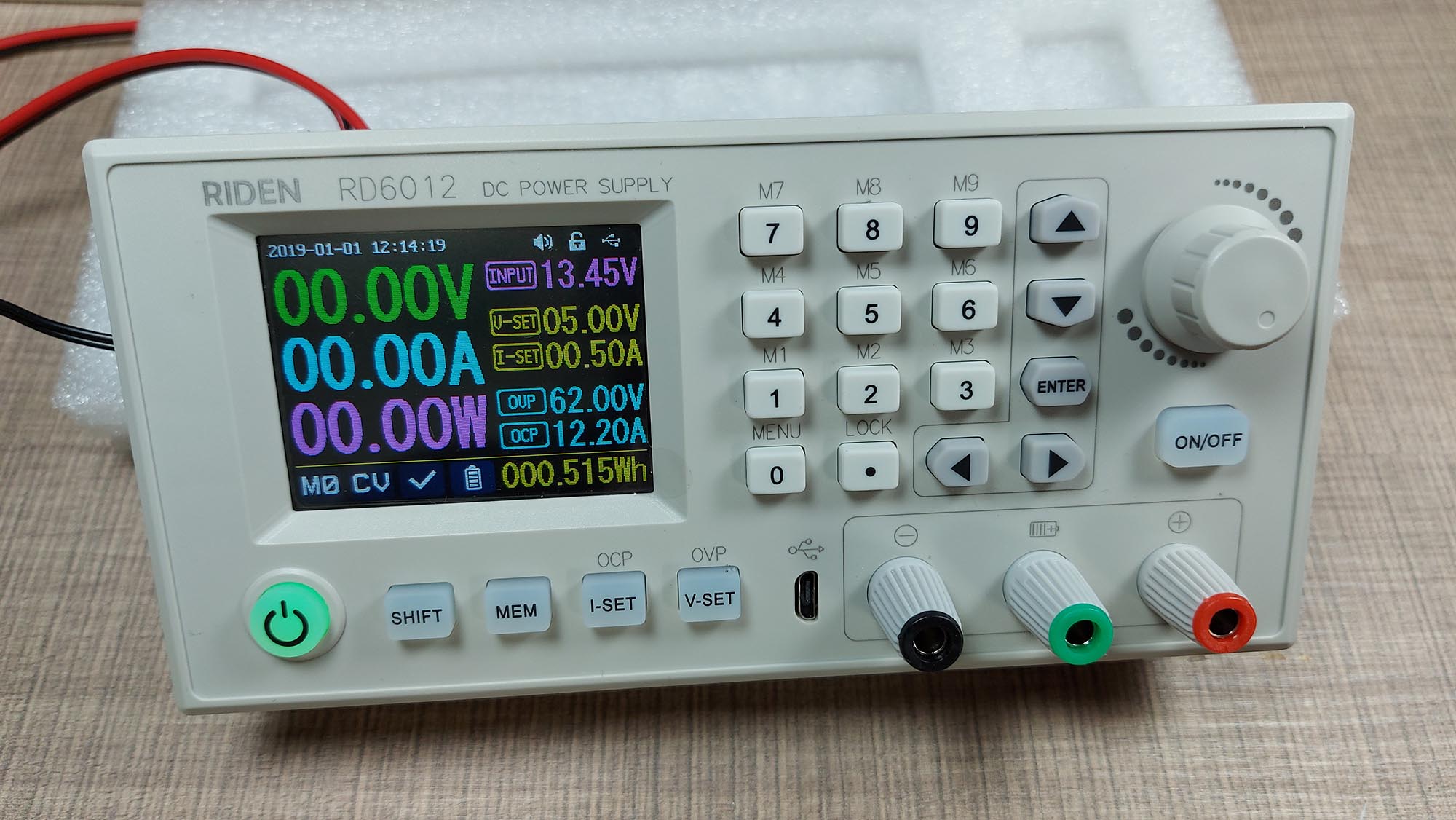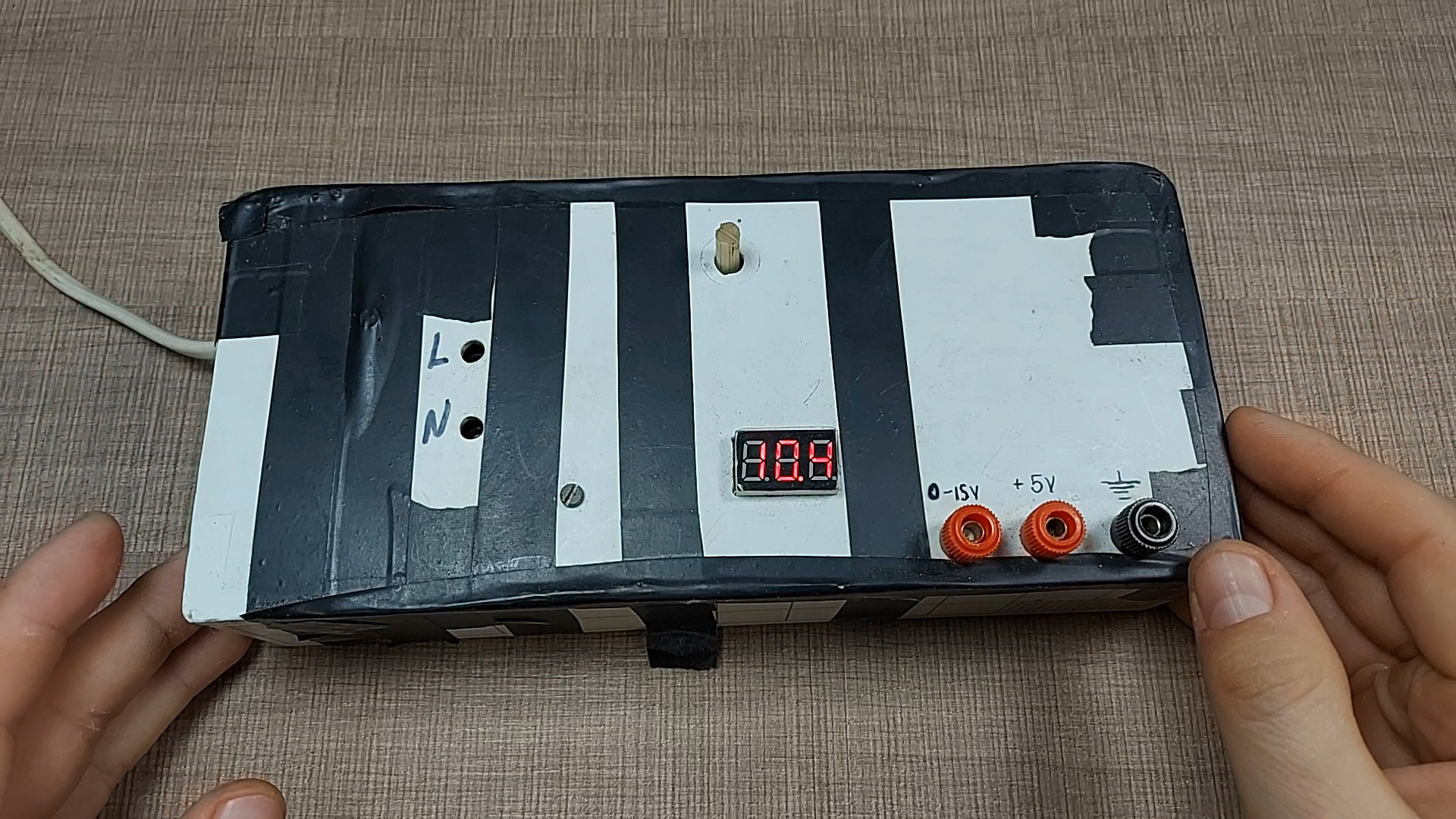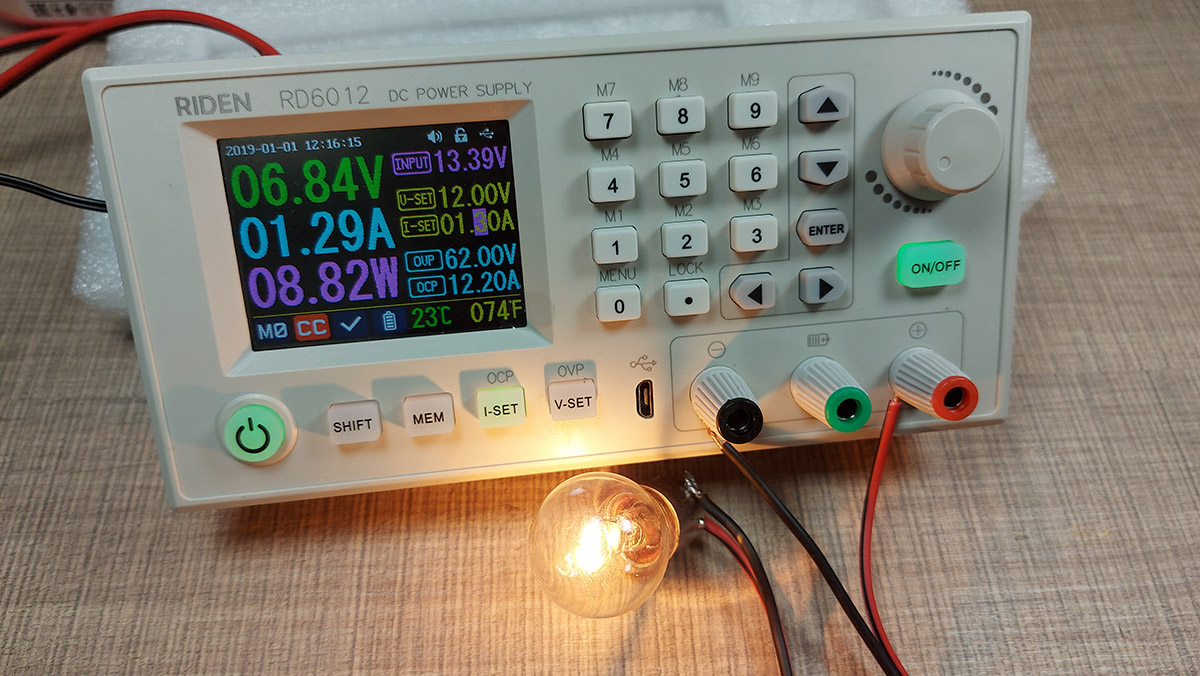When I started tinkering with electronics and Arduino, I knew that I will need a power supply from where I can power up my projects.
At the time, I knew very little about the constant voltage or constant current requirements of different electronics components such LEDs and I also knew very little about how different components have different power requirements.
I knew what a theoretical power was, but I kinda thought that the component can draw how much it needs from whatever supply it is connected to. And boy was I wrong ?
At that time, I managed to salvage a transformer from an old CRT TV that had 4 diodes on the output to convert the AC to DC and some capacitor to make it smoother. Together with the original power cable and power switch, I placed this transformer into a plastic box from an old refrigerator.
Additionally, I've added a potentiometer on the output to make a voltage divider, some banana clips to the output wires, direct access to the mains with another wall plug in the box, and a voltmeter to show the output voltage.
Without any knowledge to make it better at the time, the entire box is held together with electrical tape and to be honest it served me so well so far that I'm now emotional to have it removed from my workbench.
The power supply that I will be replacing it with is the Riden RD6012W module that was kindly supplied to me by banggood.com.
This module is a DC to DC converter that depending on the input voltage, can provide up to 60V at 12A for a total of 720W. Compared to what I had before, this thing is a beast.
You can order the module along with a suitable power supply and a case, but I only have the module for now. I do have one high current transformer from an audio amplifier that I want to use to power the RD6012 module but I need to first check what are the output voltages from it and then I plan on designing a case that will accept the transformer and the module.
With the original enclosure, the module sits normally to the workbench and this is OK if you have some shelves to raise it up to be more accessible. Since I want to have it directly on the bench, I want to make a case where the module will be angled up so I can have a better view and access to it.
I did a video where I explored the basic functions of the module so feel free to check it out.
Below are some of the key specifications for the RD6012 module:
- Input voltage range 6-70.00V
- Output voltage range 0-60.00V
- Output current range 0-12.00A
- Output power range 0-720W
- Input voltage measurement resolution 0.01V
- Output voltage setting measurement resolution 0.01V
- Output current setting measurement resolution 0.01A
- Battery voltage measurement resolution 0.01V
- External sensor Temperature detection range -10℃~100℃/0℉~200℉
- Over-temperature protection System temperature >80℃
- Screen 2.4 inch color HD display
- Weight(with package) About 642g
- Product dimension 167x81x65mm
All in all, this module is really well built, it has great features and precision and it will be a great addition to my workbench. By having more precise power control, I will be able to tinker with different types of projects and I hope to produce some more interesting and educational videos.
For that, I want to thank banggood.com once again for sending me the module and helping my channel and website grow.







